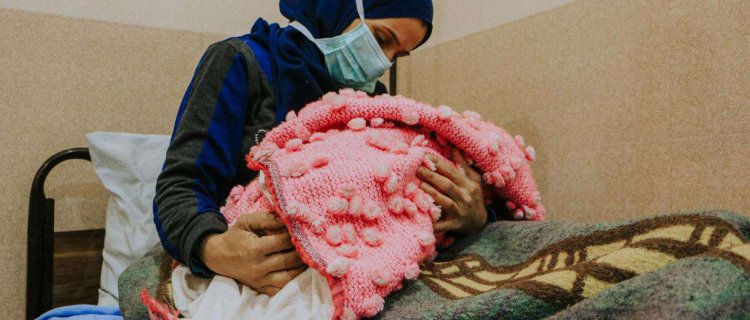
Ratiba and her husband arrived by motorcycle to the Doctors Without Borders/Médecins Sans Frontières (MSF) supported hospital in Idlib governorate, northwestern Syria. She was in labor. The couple have three other children, all born in the 11 years since the war began. They are displaced and live in a tent, struggling to make ends meet. Like thousands of other pregnant and lactating women in Syria, Ratiba was diagnosed with malnutrition and suffered from continuous dizziness, hypertension, and fatigue throughout her pregnancy.
Northwestern Syria is home to some four million people, including 2.7 million internally displaced, 80 percent of whom are women or children. Throughout the war in Syria, MSF has witnessed the additional consequences the conflict has had on women. Many live in precarious conditions and suffer from food insecurity. Existing challenges—such as gender-based violence—further compound women’s vulnerabilities. “Even the normal stages in a woman’s life, such as menstruation, pregnancy, or breastfeeding, become a complex burden,” said, Teresa Graceffa, MSF medical coordinator in Syria.